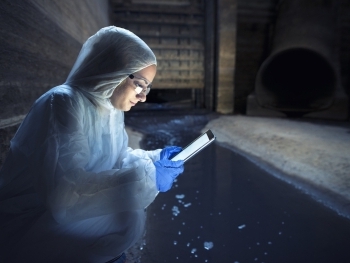The Bible and science are often seen as incompatible, with the former viewed as a source of divine revelation and the latter as a means of discovering natural laws and phenomena. However, the relationship between the Bible and science is more complex than this simplistic view suggests, and there are many areas where the two can be seen to complement and inform each other.
One of the most contentious areas of discussion between the Bible and science is the question of creation. The Bible offers a creation story in the Book of Genesis, in which God creates the world and everything in it in six days. This account has long been challenged by the theory of evolution, which suggests that life on Earth has developed gradually over millions of years through a process of natural selection. While some people see these two perspectives as irreconcilable, others have attempted to find a middle ground between them.
One approach to reconciling the Bible and evolution is to view the creation story as a metaphorical or allegorical account rather than a literal one. This interpretation suggests that the six days of creation represent a symbolic framework for understanding the world and its origins, rather than a literal chronology of events. By taking this view, it is possible to see the Bible as providing a framework for understanding the world that can be informed by scientific discoveries.
Another area where the Bible and science intersect is in the study of the natural world. Many of the natural phenomena described in the Bible, such as the weather, the movement of the stars and planets, and the behavior of animals, can be studied and understood through scientific investigation. In this way, science can provide a deeper appreciation of the natural world described in the Bible, and can help us to understand the ways in which God's creation works.
Science can also provide insights into ethical questions and moral dilemmas that are addressed in the Bible. For example, advances in genetics and biotechnology have raised questions about the ethical implications of genetic engineering, cloning, and other forms of intervention in the natural world. These questions are relevant to discussions of the nature of life and the role of humans in the world, which are addressed in the Bible.
The relationship between the Bible and science is a complex and multifaceted one. While there are areas where the two perspectives may appear to be in conflict, there are also many areas where they can inform and complement each other. By engaging in dialogue and exploring the ways in which these two perspectives can work together, we can gain a deeper understanding of both the natural world and the divine truths revealed in the Bible.




